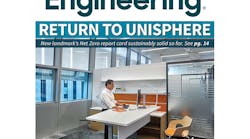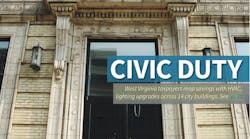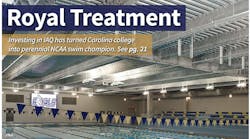Late in March, I participated in the Air-Conditioning, Heating, and Refrigeration Institute's (AHRI) 2011 Media Roundtable and Public Policy Symposium in Washington, D.C. One of the speakers was David Calabrese, AHRI senior vice president, policy, who spoke on the 2011 AHRI legislative and regulatory priorities.
The bottom line in all the messaging at this meeting was that there's a big climate change in Washington that has little to do with the ozone layer, energy independence, or efficiency standards. It has to do with a new Congress, a split Congress, a Congress hell-bent on cutting costs and working down the national debt.
Calabrese said the mood in the Capital has swung away from the regulatory position that held sway over the past several years. He said there is rising opposition to regional energy standards, cap-and-trade climate legislation is dead, and tax credits and incentives are cowering under the blade of budgetary oversight.
“The focus on the Hill is on expenditure cuts,” he added.
At risk: energy-efficiency regulations, chiller-replacement incentives, and the commercial equipment tax credit.
The good news is that AHRI's priorities include pushing the adoption and support of legislation that protects federal incentive programs and promotes optimizing both residential and commercial buildings. In fact, the organization is pushing its support for the reintroduction of the Expanding Industrial Energy Efficiency Incentives Act of 2009 (S.1639), which created a chiller replacement credit of $150 per tonnage rating of each CFC chiller replaced, in addition to a $100 credit per tonnage reduced if a variable frequency drive also was used.
It is AHRI's contention that a targeted tax credit to accelerate the phaseout of this equipment will result in significant energy savings for the nation and building owners while protecting the environment and providing significant support for U.S.-based manufacturing jobs.
Calabrese reported that AHRI supports several key improvements to Section 1790 (the energy-efficient commercial-building tax deduction) of the tax code, including fixing the existing deduction for new buildings, focusing on multiple paths for retrofit qualification, and allowing credit to be shared among pertinent building-improvement stakeholders.
Calabrese admitted that these and some of AHRI's other priorities will all be uphill battles, but battles that need to be fought. The idea is to help the industry create an environment in which building energy use, comfort, and safety are optimized.
This brings me back to something near to my heart: HPAC Engineering's Engineering Green Buildings Conference. Initially the event targeted primarily systems engineers, but over the years, it evolved to also serve facility managers. To better reflect its expanded scope, we changed the name to the Optimum Buildings Conference.
Part of HVACR Week 2011, Optimum Buildings will be held from Sept. 21-23 in Indianapolis. The event will provide you opportunities to learn from cutting-edge practitioners, network with fellow buildings professionals, and discover the latest offerings from leading manufacturers and service providers. Please visit Website at http://bit.ly/gtnBVm for more information. Also, drop me a line with any ideas on topics or offers to speak, if you're interested.
Yes, there is a complete climate change going on in Washington that impacts the HVAC marketplace. For those who stay ahead of the game, these changes can offer many opportunities. We'll keep you apprised here and on our website (http://www.hpac.com) and hope to see you in Indianapolis in September.
Send comments and suggestions to [email protected].








